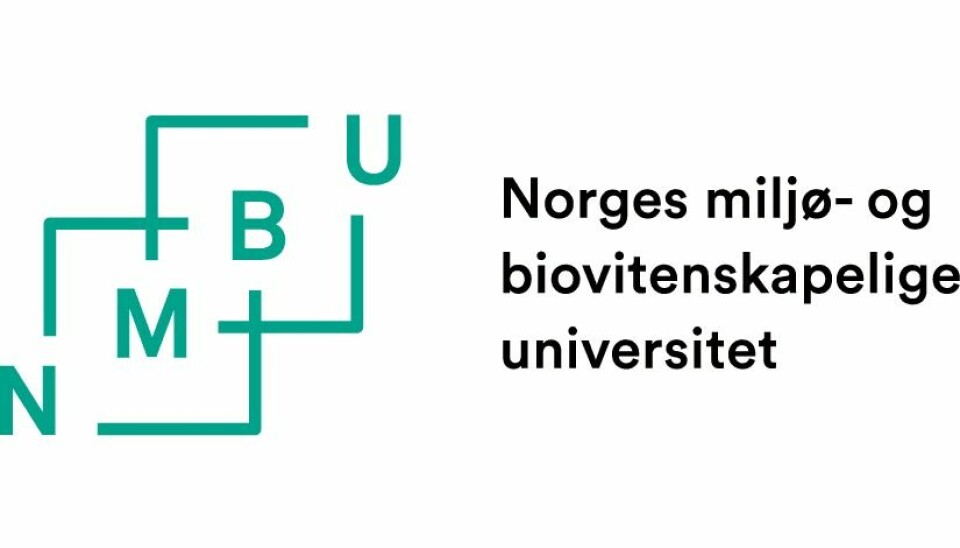Ledig stilling ved NMBU
PhD scholarship within machine - learning and computational design of thermoelectric materials
Deadline: 31.05.2019
About the position
The Faculty of Science and Technology (REALTEK) at the Norwegian University of Life Sciences (NMBU) has a vacant 3-year PhD– position related to machine-learning and computational design of thermoelectric materials.
A three-year PhD scholarship on computational design of thermoelectric materials is vacant in the material theory group of Assoc. Prof. Kristian Berland.

The project will combine high-throughput density functional theory calculations with machine-learning methods to accelerate the design and assessment of thermoelectric materials.
The project is part of a strategic initiative to link research activity at the REALTEK faculty with the strong and growing data science environment and Assoc. Prof. O. Tomic will provide guidance on machine learning methods.
Thermoelectric materials have the ability to transform waste heat directly into electricity and therefore have significant potential to contribute to lowering the global greenhouse gas emissions. They are also widely used in many niche applications, such as in powering medical devices. Further progress, however, hinges on finding materials with higher thermoelectric efficiency, which does not rely on rare or toxic elements. This motivates computer-assisted design combining density functional theory calculations with machine learning methods.
The student will benefit from co-supervision by Prof O.M Løvvik at SINTEF/University of Oslo. The project will also involve a collaboration with the group of Prof. G. Madsen group in TU Wien with possibilities for an extended research visit in the Madsen group.
Main tasks
- Implementation of computational methodology to evaluate thermoelectric properties
- Theoretical analysis of material properties
- High-throughput density functional theory calculations
- Use of machine learning techniques
The specific tasks will be adapted to some extent to the background and interests of the student.
The successful candidate is expected to enter a plan for the progress of the work towards a PhD degree during the first months of the appointment, with a view to completing a doctorate within the PhD scholarship period.
Qualifications and skills
The successful applicant must meet the conditions defined for admission to a PhD programme at NMBU. The applicant must have an academically relevant education corresponding to a five-year Norwegian degree programme, where 120 credits are at master's degree level (candidates submitting MSc thesis by 15 August 2019 may also be considered). The applicant must have a documented strong academic background from previous studies and be able to document proficiency in both written and oral English. For more detailed information on the admission criteria please see the PhD Regulations and the relevant PhD programme description.
The applicant must document expertise and interest in the research subject.
Required academic qualifications
- Master degree in physics, chemistry, material science or related disciplines
- Candidates with a master degree in computer/data science can also be eligible with sufficient background in the physical sciences.
Desired academic qualifications
- Strong written and oral communication skills in English
- Familiarity with Python or related scripting languages
- Experience on material modeling and/or theoretical condensed matter physics is an advantage
- Experience using density functional theory, in particular plane-waves codes such as VASP, is a definite advantage.
- Familiarity with transport calculations
- Good programming skills or familiarity with machine learning is also a plus.
Desired personal skills
- Eagerness to learn
- Dedicated and quality-oriented
- Strong analytical skills
Remuneration and information
The position is placed in government pay scale position code 1017 PhD Fellow, wage framework 20, salary grade 51 (equivalent currently to NOK 449 400) and follow ordinary meriting regulations.
Terms of employment are governed by Norwegian guidelines for PhD fellowships at Universities and University Colleges.
For further information, please contact:
- Associate professor Kristian Berland by e-mail: kristian.berland@nmbu.no; or by phone +47 45679296
Application
To apply online for this vacancy, please click on the 'Apply for this job' button above. This will route you to the University's Web Recruitment System, where you will need to register an account (if you have not already) and log in before completing the online application form.
Applications should include (electronically) a letter of intent, curriculum vitae, full publication list, copies of degree certificates and transcripts of academic records (all certified), and a list of two persons who may act as references (with phone numbers and e-mail addresses). Publications should be included electronically within the application deadline.
Application deadline: May 31st 2019
Printed material which cannot be sent electronically should be sent by surface mail to Norwegian University of Life Sciences, Faculty of Science and Technology, P.O. Box 5003, NO-1432 Ås, within May 31st 2019. Please quote reference number 19/01927.
If it is difficult to judge the applicant’s contribution for publications with multiple authors, a short description of the applicant’s contribution should be included.
The relevant NMBU department may require further documentation, e.g. proof of English proficiency.






